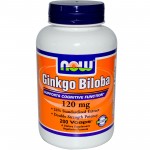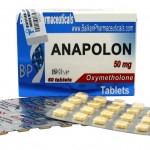By Admin – Steroidal.com
Vitamin E is a fat-soluble vitamin found in sunflower oil, nuts, such as almonds and hazelnuts, whilst in lower sources in avocados and asparagus. It’s known as an anti-oxidant against free radicals, used for immune function, cell regeneration, testosterone production and the manufacture of red blood cells. We have written about vitamin E, in regards to its positive effects on testosterone function.
The second compound we’re going to discuss is Selenium, which is a mineral. Selenium is found in fish, such as tuna, salmon, shrimp, sardines and also found in turkey. Its known to be an anti-oxidant, but more recent research points the finger at both vitamin E and selenium being problematic for men.
A recent study which was based on data from he Selenium and Vitamin E Cancer Prevention Trial, or SELECT, a rigorously executed, randomized and placebo-controlled trial conducted by the SWOG cancer research cooperative group that involved more than 35,000 men, found it can significantly increase the risks of prostate cancer in men.
The trial was designed to last 12 years and started in 2001, but was stopped early in 2008 because it found no protective effect from selenium and there was a suggestion that vitamin E increased cancer risk. Men taking part in the research were given 400 international units (IU) of vitamin E a day and a selenium dose of 200 micrograms.
The men were still followed even though the study stopped prematurely and what they found was that men who took either or both supplements had an increased risk of prostate cancer. Overdosing on the mineral selenium by taking supplements raised the chances of developing high-grade cancer by up to 91%, the US scientists found. Vitamin E pills also boosted the risk of aggressive cancer, more than doubling it for men lacking selenium.
Selenium supplementation had no effect on men who started out lacking the mineral, but was found to be harmful when added to baseline levels that were already high. For aggressive, high-grade cancers, the risk went up by 91%.
Among men with low selenium status at the start of the study, vitamin E supplements increased the overall risk of prostate cancer by 63% while the high-grade risk rose by 111%.
Of the men in the study who developed prostate cancer, 489 were diagnosed with high-grade disease.
Study leader Dr Alan Kristal, from the Fred Hutchinson Cancer Research Centre in Seattle, said: “These supplements are popular – especially vitamin E – although so far no large, well-designed and well-conducted study has shown any benefits for preventing major chronic disease.
“Men using these supplements should stop, period. Neither selenium nor vitamin E supplementation confers any known benefits, only risks.”
Dr Kristal also said people were often misled by the supposed benefits of dietary supplements. “Many people think that dietary supplements are helpful or at the least innocuous.”
“This is not true. We know from several other studies that some high-dose dietary supplements – that is, supplements that provide far more than the daily-recommended intakes of micronutrients – increase cancer risk.
“We knew this based on randomised, controlled, double-blinded studies for folate and beta carotene, and now we know it for vitamin E and selenium.”
Dr Matthew Hobbs, deputy director of research at Prostate Cancer UK, said: “It is very difficult to draw any useful conclusions from this paper that would be applicable to all men. We would need to see data from much longer studies that look at the total health impact of selenium or vitamin E supplements before we could say if the small effects on the chance of getting prostate cancer suggested by this study outweigh any general benefits to health.
The new findings appear in the latest edition of the Journal of the National Cancer Institute.
Source:
http://www.theguardian.com/society/2014/feb/22/vitamin-supplements-raise-risk-cancer-men







